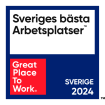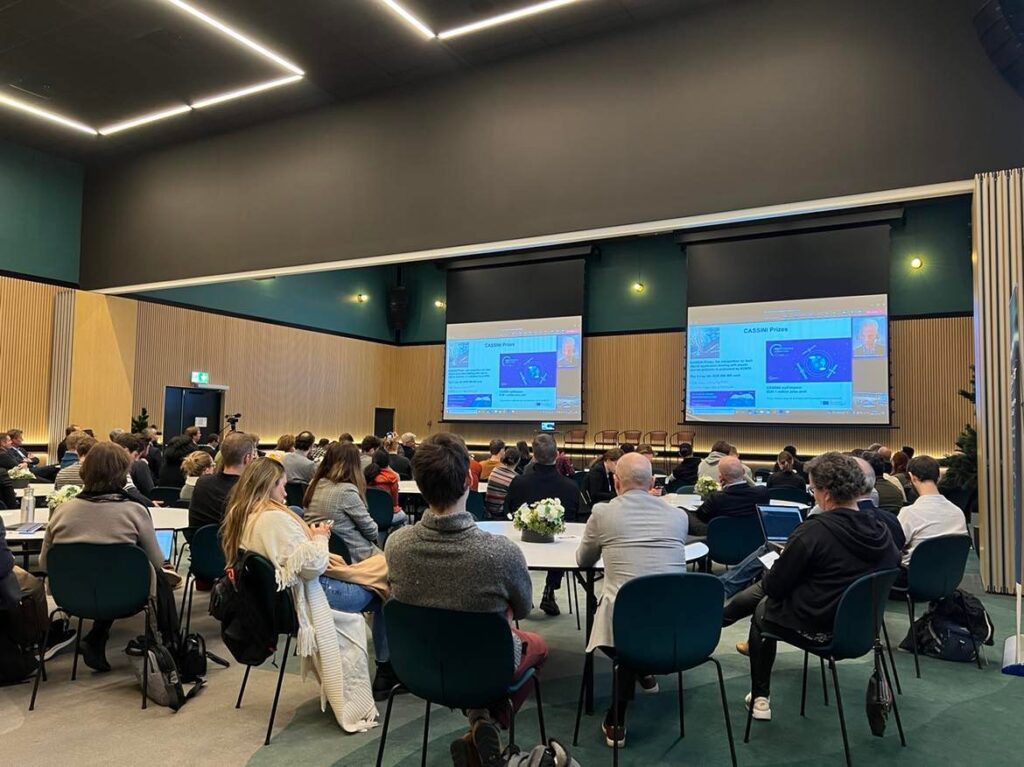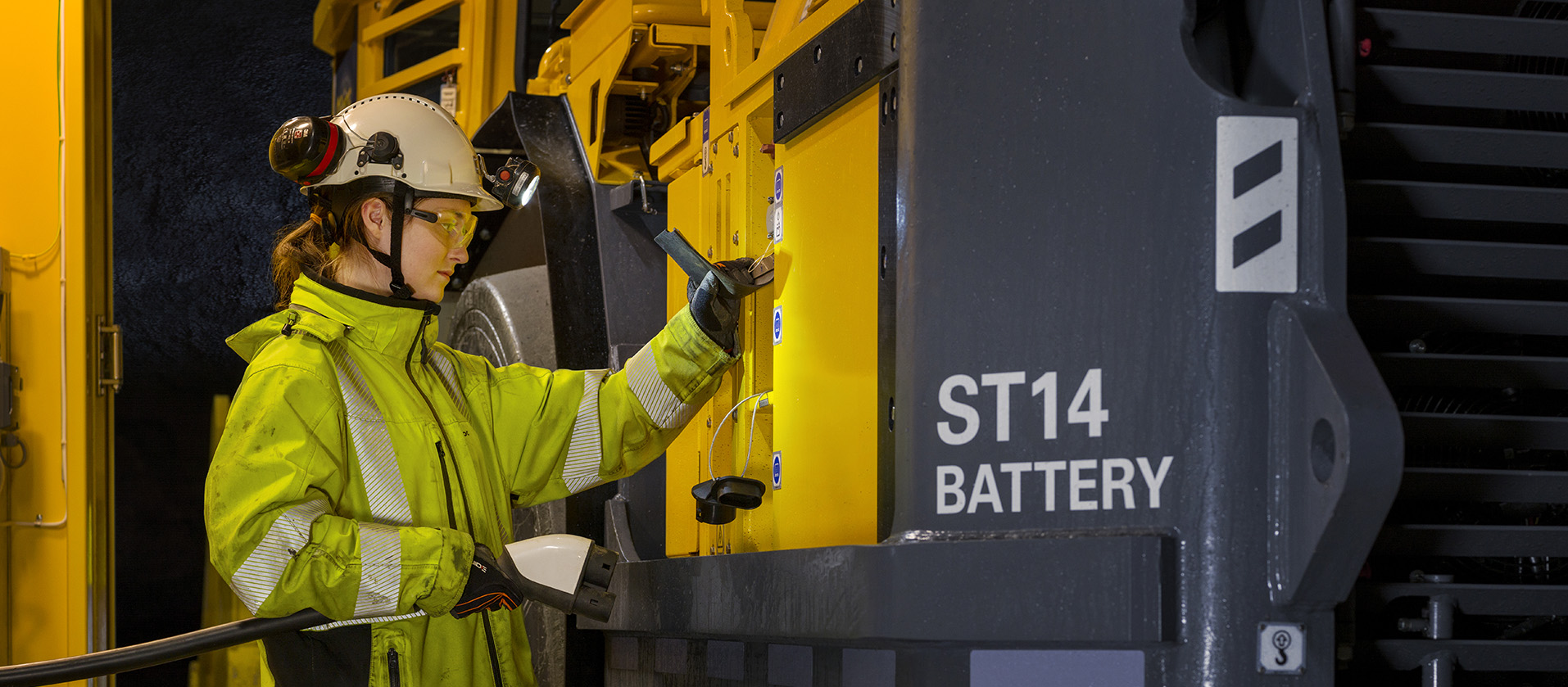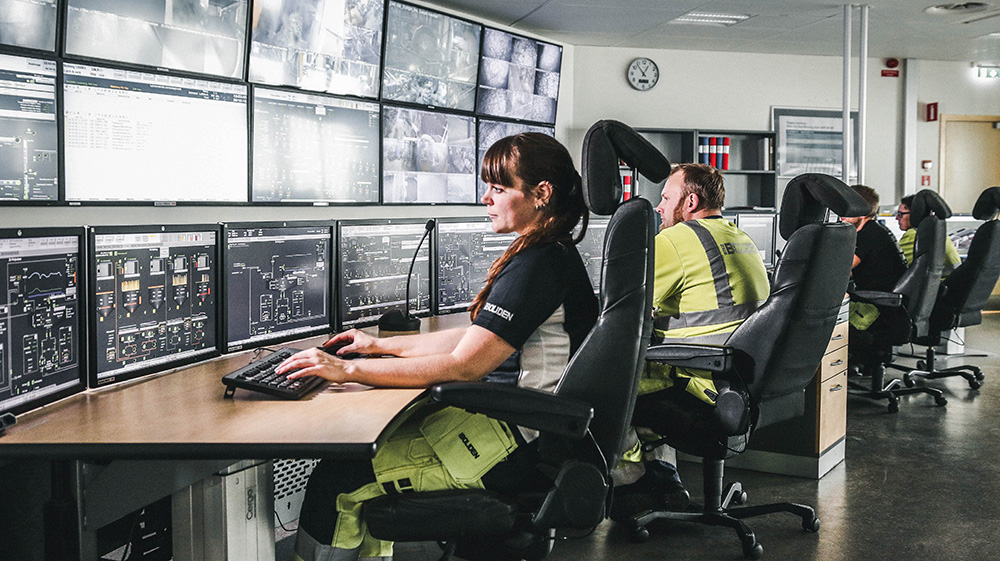S3P Space welcomes Malta
Malta joins join the thematic smart specialisation partnership S3P Space, reinforcing inter-regional collaboration as a driver of technological progress in the space sector. With the addition of Malta, the partnership now includes 11 regions across Europe, including the leader region Norrbotten, Sweden.
Each of these regions have unique assets and capabilities for the European space value chain – for example the head quarters of the European Space Agency in Zuid-Holland, the aircraft and spaceship manufacturing cluster in Bavaria and Baden-Württemberg and Norrbotten, the only rocket launch site in mainland EU. With the addition of aspiring space regions like Western Greece and now Malta, the partnership broadens their assets and potential synergies further.
– The partnership has the goal to bring people together, spark collaborations, and open up new opportunities for growth along the European space value chains. By working across borders, the partnership aims to strengthen Europe’s position in the global space industry, says Lina Linde, LTU Business and space lead in Norrbotten Regional Innovation Center and the S3P Space partnership.
Malta’s space journey to date
Michael Quinton is the space programme executive at Xjenza Malta, the government agency responsible for promoting and coordinating scientific research, technological innovation, and science communication. He shares a brief background leading up to Malta’s decision to engage in the smart specialization space community.
– Over the past decade, the Maltese government has developed a space policy, established the National Space Research Fund, and supported research initiatives that bridge academia and industry.
2024 saw a major milestone as the country joined the European Space Agency’s (ESA) PECS agreement in 2024, demonstrating its commitment to fostering a robust space ecosystem.
– We’re still in initial stages, and considering the way that space works in relation to networking and people collaborating on different projects, we have to get involved wherever we can. Meeting new people and new partners to find more potential projects, and that way you’re building capacity over time, says Michael Quinton.
Why Inter-Regional Collaboration Matters
Collaboration is a cornerstone of space innovation, and Malta’s entry into the S3 partnership underscores the importance of shared expertise. A key challenge for emerging space economies, such as Malta’s, is bridging the gap between academic research and commercial viability. By joining the S3 partnership, Malta is aspiring to connect with space players across Europe, facilitating technology transfer and market access.
According to the Malta Space Programme team, one of the biggest hurdles is limited awareness and adoption of satellite data across government and industry sectors. By integrating into the broader European space network, Malta can tap into best practices and proven strategies for applying space technologies to non-space industries such as maritime, tourism, and ICT.
A Collaborative Future for European Space Innovation
With continued investment in education, policy alignment, and industry partnerships, Malta’s space program is poised to become a valuable asset within the European space ecosystem. As the S3 partnership grows, it will further solidify Europe’s position as a leader in space innovation, proving that inter-regional cooperation is the key to unlocking the full potential of the sector.
– Malta’s inclusion in the S3P Space partnership is more than just a symbolic step—it is a strategic move that enhances inter-regional cooperation and strengthens Europe’s collective space capabilities. The collaborative nature of the space sector means that emerging players like Malta can contribute meaningfully while benefiting from the expertise of more established regions, Lina Linde ends.
About S3P Space
Founded in 2021, the S3P Space fosters cooperation between European regions, leveraging expertise, resources, and funding opportunities to accelerate space-sector growth. Malta’s entry marks a milestone in the country’s space journey, which has evolved from foundational policy work into an expanding hub of research, education, and industry participation.
Exploring innovation opportunities in Norrbotten?
Let’s talk more! We would like to explore collaboration opportunities and understand more about how Norrbotten Regional Innovation Center can boost your journey.
Norrbotten Regional Innovation Center EN
Används på landningssidan för projektet
Cold, Remote, Connected: Europe’s Arctic wireless platform is a demonstration of place-based innovation and interregional cooperation
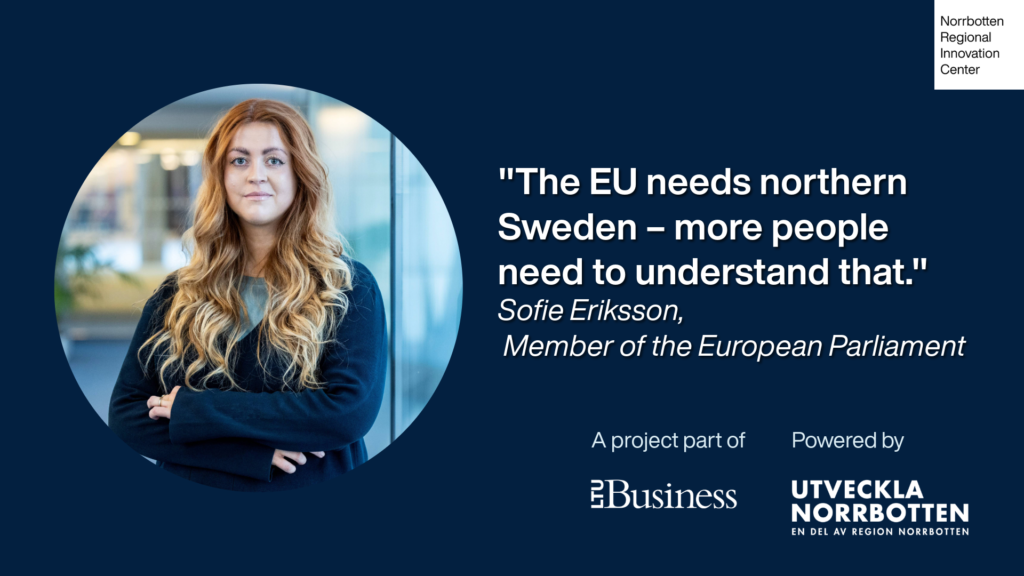
The coming release of OECD report “Building Resilience to Global Transition in the Northern Sparsely Populated Areas” provides crucial insights and over 100 recommendations for Norrbotten and 13 neighbouring regions in Sweden, Finland, and Norway that make up the NSPA (Northern Sparsely Populated Areas).
It highlights both shared challenges and unique opportunities for innovation, sustainability, and economic development in the European Arctic. In light of the report, there are also important lessons on building cross-border innovation ecosystems that other EU regions should take inspiration from.
Sofie Eriksson, MEP, highlights the importance of raising awareness in EU about northern Sweden:
– The EU needs northern Sweden – more people need to understand that. Without the raw materials, experience, and expertise from these regions, industry on the continent won’t function either. It is crucial that the OECD, given its position, highlights how much northern Sweden contributes and that there is, therefore, a shared EU interest in ensuring that the region can truly thrive.
Innovation by necessity: How local conditions in northern Scandinavia drive wireless breakthroughs
Northern Scandinavia’s harsh climate, vast distances, and sparse population pose significant challenges—but also drive groundbreaking wireless innovation.
For more than thirty years, the mantra of Luleå University of Technology’s Center for Distance-Spanning Technology has been “better than being there” – striving to develop technology that is state-of-the-art when it comes to overcoming physical distance.
This mission coupled with bold and early investments in broadband infrastructure made the Norrbotten region a pioneer in developing and deploying virtual meetings, leading to university spinoff Marratech that was purchased by Google in 2009.

When conventional solutions fail, necessity sparks new technology, making the region a leader in broadband expansion, autonomous transport, and satellite communication.
Cross-border collaboration between academia, industry, and policymakers has turned this remote area into a testbed for cutting-edge solutions, offering valuable insights for the EU regional innovation community.
– Digitalization is key to quality of life and societal development in rural areas. Yet, as a consumer market, our local geography and demographic conditions require technology adaptions or even brand new solutions. We partner researchers and labs with the needs owners, business sector and funding agencies to make it happen, says Björn Backe, Director of the Center for Distance- Spanning Technology at Luleå University of Technology.
Technology for communities, industries and local businesses
New wireless industrial applications see the light of day in the underground testbed, the forthcoming 6G test site or the NorthStar Innovation Programme, developed jointly with industry partners and sector technology providers.
In other projects, researchers collaborate with Baltic regions to upscale smart cities into smart regions; and work with local authorities in northern Sweden to explore ways to improve public services such as mobility and accessibility to transport in rural areas.
Supporting resilience and competitiveness in the local business community, the university also run tailored projects such as Green Transition North, raising awareness and supporting the local small- and medium enterprises with advanced technology that allows for circular supply chains and fossilfree energy systems.
Cross-Border Collaboration as a Success Model
Strong Nordic cooperation fuels innovation. Institutions like the University of Oulu and Luleå University of Technology, alongside companies like Ericsson, ABB and Telia, pioneer wireless advancements. The early 2000s Living Labs initiative made Norrbotten a global digitalization leader, proving that user-driven innovation can accelerate EU-wide R&D success.
The engagement from these stakeholders is a thriving nursery for tech SMEs, supported by the local and regional governments by creating physical innovation environments close to academia, as well as anchoring wireless technology in long-term strategies for the region, such as the smart specialization strategy for Norrbotten.
Another example of the close collaboration between the regions is the joint leadership of the European S3-partnership on wireless technology as well as an impressive portfolio of Interreg and I3 projects.
The Future of Arctic Connectivity
Michael Nilsson has a long experience driving wireless technology innovation ecosystems, currently in the realm of Center for Distance-Spanning Technology. For the future of connectivity in the Arctic – and Europe – he champions SME support, collaboration and place-based approach to harness the opportunities.

– The transition to 6G will expand possibilities in e-health, autonomous systems, and creative industries like AR/VR. Security and resilience will also be at the forefront of future innovations. Cybersecurity measures must ensure that autonomous systems —whether in transportation, industry, or energy—operate without exposure to external threats. The EU’s ongoing work on digital resilience strategies can benefit from the region’s experience in building secure, high-performance networks in extreme conditions.
By embracing this approach, the EU can strengthen its leadership in next-generation digital technology. Northern Scandinavia exemplifies how necessity drives technological breakthroughs, with its self-reliant yet collaborative model proving that innovation flourishes at the intersection of resilience, cooperation, and forward-thinking policy.
However, for these innovations to spread across the region and achieve widespread adoption, more is needed. Norrbotten alone spans an area three times the size of Belgium and relies heavily on exports.
To ensure that innovative companies and emerging sectors in the region remain competitive, critical infrastructure investments—such as resilient wireless networks and 5G corridors—are essential.
Are you a fan of regional innovation?
Norrbotten Regional Innovation Center is a collaborative platform to accelerate societal transformation in a smart and sustainable way. This will be done through inter-regional European co-operation.
Norrbotten launches regional innovation center
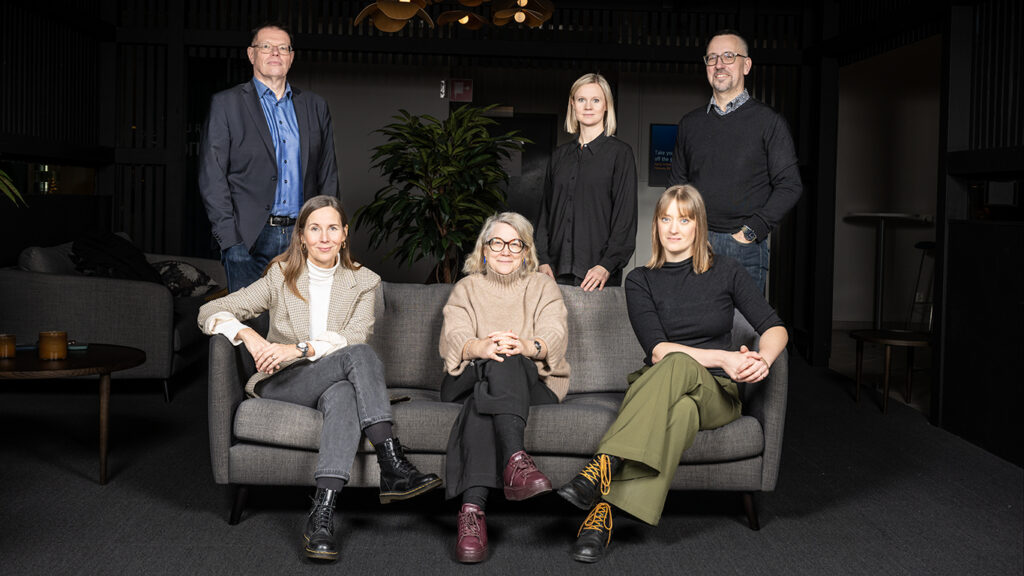 Norrbotten has industries that are important for the people in our county but also for the rest of Europe, which requires renewal and cooperation to ensure long-term growth. To meet this challenge, Region Norrbotten and LTU Business are launching a new collaboration platform: Norrbotten Regional Innovation Center.
Norrbotten has industries that are important for the people in our county but also for the rest of Europe, which requires renewal and cooperation to ensure long-term growth. To meet this challenge, Region Norrbotten and LTU Business are launching a new collaboration platform: Norrbotten Regional Innovation Center.
The new innovation center will act as a catalyst for knowledge exchange, development and collaboration between strategic industry clusters in the region. The focus is on strengthening Norrbotten’s position both nationally and internationally through smart specialization and innovative collaborations.’
– The Norrbotten Regional Innovation Center will be an important platform for increasing learning between actors within the region, but also for strengthening our partnerships in Europe. Through joint activities and projects, we strengthen the region’s competitiveness, says Linn Berglund Pantzare, project manager at LTU Business.
A strategy for smart growth
The initiative is based on the principles of smart specialization, an EU strategy that over the past decade has promoted regional cooperation and increased competitiveness. Norrbotten focuses on further developing its strengths in basic industry, while investing in growth industries such as space, hydrogen, ICT and tourism.
– We will strengthen what we are good at and invest in what we need to get better at. The S3 work is about just that – and the link to the EU, our European added value and international cooperation will be developed with this platform and benefit the companies in Norrbotten, says Helena Ölund, Chairman of the Regional Development Committee in the Regional Council.
Investment with a focus on collaboration and benefits
The work to establish the Norrbotten Regional Innovation Center will begin in December 2024. The project is run by LTU Business and funded by Region Norrbotten, with the aim of creating concrete values for the region’s business community and contributing to stronger European value chains.
– We look forward to supporting the region’s development by strengthening cooperation between actors and contributing to Europe’s green transition, says Gry Holmgren Hafskjold, CEO of LTU Business.
Facts
LTU Business is a non-profit limited company and is part of the LTU Holding Group, which is owned by Luleå University of Technology. LTU Business’ mission is to promote innovation and development through collaboration between academia and society with a particular focus on the emerging green industries.
Smart Specialization (S3) is a concept introduced by the European Commission. It can be described as a way of working to focus on innovation and sustainable growth in the areas where there is the greatest potential. An area can take many different forms, for example a particular technology or part of a sector, or to solve a societal challenge. Source: Tillväxtverket (The Swedish Agency for Economic and Regional Growth)
Norrbotten’s smart specialization strategy
Every region in Europe is developing its own smart specialization strategy. Norrbotten’s strategy aims to further develop the county’s conditions for innovation in Norrbotten. Read the English summary here.
5 innovation take-aways from fully-booked Swedish Big Science Forum
Recently, leaders from European Big Science research facilities, Swedish industry and universities gathered gathered in Lund for the Big Science Forum. The packed agenda facilitates both important business networking opportunities as well as inspiration and new intelligence from the leading players in the growing market.
1. ”Sweden, let’s grow from teenagers into adults!”
Darja Isaksson, Director General of Vinnova, Darja Isaksson addressed Sweden’ young but increasingly important role as a player in the big science market.
2. Trademarks of innovative suppliers – the secrets to winning contracts
Specialist expertise, a deliberate strategy, persistence, and key contacts. These are just some of the success factors behind member companies winning contracts with Big Science research facilities.
3. What are the customers looking for in 2024 and beyond?
A panel from leading research organisations including FAIR and GSI, XFEL, CERN, ITER, MAX IV, ESS, SKA, and ESO, jointly procuring goods and services worth millions every year shared what is currently topping their wish list:
”These organisations are looking for suppliers that can provide customized solutions in a small scale across a very wide range of products and services – Swedish small and medium-sized companies with their culture of innovation and export are ideal partners, Adam Wikström explains, business development advisor at LTU Business and representative of Big Science Sweden.
4. Match-making to find problem-solution fits and grow new business relationships
”The afternoon sessions of technical presentations mixed with informal networking breaks were really insightful and valueable. Very hands-on conversations with suppliers about the needs of this market and an opportunity to grow new relationships, Adam Wikström continues.
5. A call for gender diversity: Where are all the women?
Big Science Sweden Forum also covered a session dedicated to discussing how to bring about change in the industry towards gender equality to accelerate innovation and creativity.
Swedish Big Science Forum is a biennial event where high-tech industry and academia meet with European Big Science organisations to hear about the latest developments and explore new opportunities. The forum is characterised by stimulating presentations and discussions, along with plenty of opportunities for networking.
Welcome to the team, Olov!
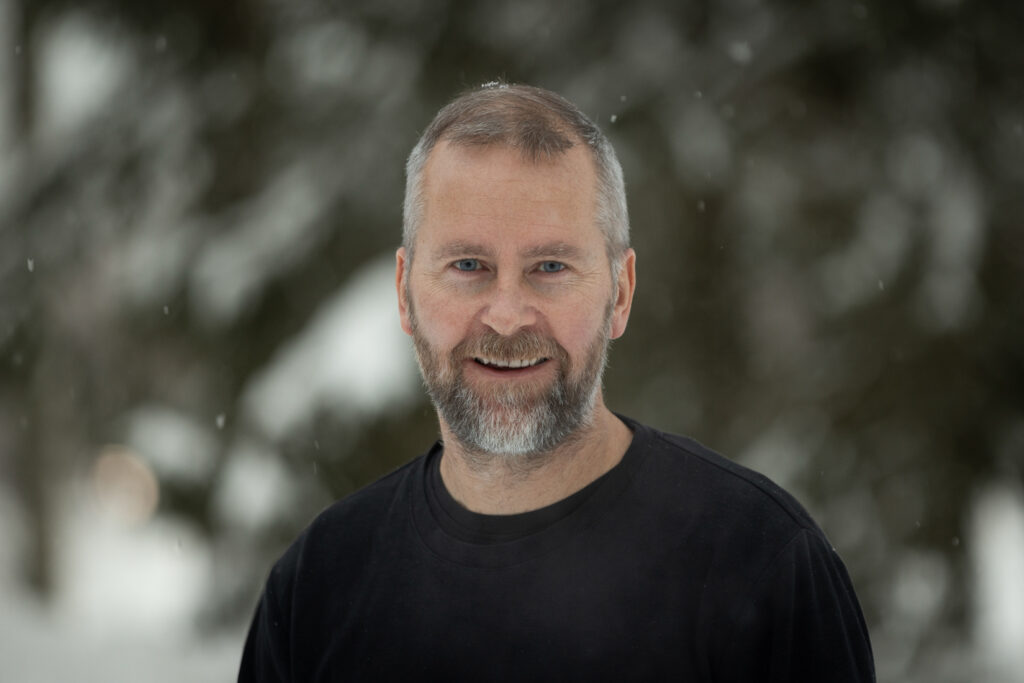
Olov Hultdin is joining our Skellefteå team as senior business developer. He has a long experience within the field, most recently from a privately owned investment company in Skellefteå, No Plan B Invest, where he ran an entrepreneurial school and was involved in two startups, T2 and Green Flight Academy. Olov has a Master of Science in Engineering, specializing in Industrial economics.Hi Olov! Tell us about your role at LTU Business
I want to continue working on helping companies achieve sustainable profitable growth. And perhaps even more than before from an innovation and sustainability perspective. My job involves finding opportunities and problems with our customers. And then helping them to take advantage of the opportunities and solve the problems. I believe the unique access to excellence through Luleå University of Technology and our own expertise here at LTU Business will provide great value to our customers.
What are you most looking forward to?
To learn more about innovation and sustainability. It will be super exciting and I feel that I am in the right place for it.
What is your most important driving force?
To make a real difference when it comes to sustainable growth in Norrland. And having fun in the meantime. I am originally from Malå, so I am passionate about the community development in the hinterland provinces of northern Sweden.
What makes you laugh?
British humor like Fawlty Towers.
We’re delighted to have you on the team, Olov!
Space Innovation Forum gathers space stakeholders to intensify collaboration and promote growth
Deeper collaboration and continued investments in the north and its satellite value chain could strengthen Sweden’s competitiveness says Space Innovation Forum delegates.
Hundreds of representatives from academia, space companies, social actors and enablers gathered for two days on the theme of Norrbotten’s future space sector. The conference is organized within the project RIT (Rymd för Innovation och Tillväxt – Space for Innovation and Growth).
The audience got the latest news on the northern Sweden space business – industrial partnerships, the development of commercial test operations for space applications in Kiruna, innovation support and cluster building. At the same time, the need for deeper collaboration and stronger business community and societal services are top priorities to attract companies, capital and talent. This was iterated on and off stage on several occasions, not least when LTU Business, SSC and Luleå University of Technology presented the new pre-study Space Capacity Building. The report has identified strengths in Norrbotten’s space industry, but also exposed weak links that need to be addressed in order for northern Sweden to be competitive in the fierce global space marketplace.
The conference offered an exciting program of innovation workshops, study visits and, not least, interesting lectures by prominent players such as the Swedish Space Agency, the European Space Agency (ESA) and the Swedish Armed Forces.
– I am so proud that we have the knowledge, the system, the competence in Sweden and not least up here in the north. When we talk about space, it easily gets crowded – but when we get together, with all the knowledge in the industry and start collaborating and talking about space in a wider perspective, more and more companies and organizations can see the possibilities of space, Anna Rathsman, director general of the Swedish Space Agency, concluded at Space Innovation Forum.
The RIT project is run by LTU Business, Luleå University of Technology, IRF and Arctic Business, with support from OHB Sweden, SSC, GKN Aerospace, Isar Aerospace, Region Norrbotten, Kiruna Municipality, Luleå Municipality, Sparbanken Nord and the EU. Read more
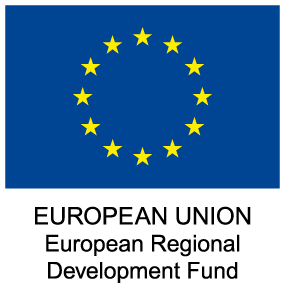
Study by LTU Business predicts space growth in northern Sweden
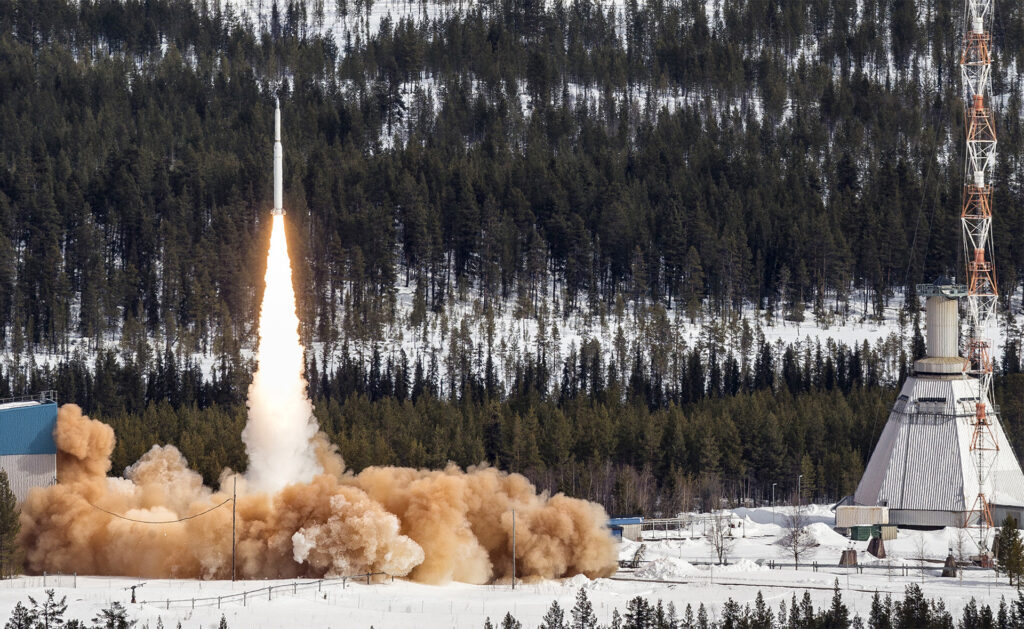
A recent study by LTU Business estimates that the space cluster in and around the city of Kiruna in northern Sweden could double in size to reach a total of 50-70 actors and 1,000 employed in 10-15 years. The conclusion is based on an analysis of the cluster’s recent development, its location and conditions, as well as on global trends in the space industry.
The study was initiated and financed by the regional space development program RIT2021, which involves all major space organizations in northern Sweden, and carried out by LTU Business. The aim was to estimate the expected growth of Sweden’s northernmost space cluster over the coming 10-15 years.
Johanna Bergström Roos is project manager for RIT2021. She describes the general development of the space industry:
– New technology enables easier and cheaper access to space, transforming the industry from having been exclusive to expensive national initiatives to becoming a market for virtually anyone and everyone with interest and ambition. This enables the space sector to expand both academically and commercially, and creates opportunities for small businesses to contribute, compete and grow in it.
Study results
Given the conditions and the recent progress, and when compared to other nations and space clusters, the study estimates that the Kiruna space cluster could grow to double its current size in just 10-15 years, reaching twice the number of organizations and people employed. LTU Business expects a healthy growth of additional startups as well as more mid-sized companies and possibly another tier 1 company seeking to establish themselves in the area.
LTU Business also expects a gradual shift from strong governmental investments in the area to more commercial investments, resulting in a more self-sufficient cluster ecosystem.
Three key strengths
The study highlights three key strengths when assessing the space cluster’s potential: the location, the infrastructure, and the already established ecosystem of actors.
The region is huge, 150 000 square kilometers, and sparsely populated. It provides a big unpopulated testing and impact area with very little air traffic, which is rare in Europe. The northern location at 67°N makes it favorable to launch and communicate with polar satellites and to study space and atmospheric phenomenon such as northern lights.
Despite the size of the area and how sparsely populated it is, the infrastructure is well developed. The Gulf Stream makes the weather mild and there are cities with airports and public transportation. The region provides opportunities for new establishments and expansions, in cities like Kiruna and elsewhere in the region.
Finally, the space cluster has a well-established ecosystem of organizations and international collaboration. With big actors like the Swedish Institute of Space Physics, the Swedish Space Corporation and Luleå University of Technology there is already advanced test, research and launch infrastructure in place.
There is a strong academic foothold including research, master and PhD programs, and a space high school as the starting point in space education; there is a strong industry sector and startup scene, and multiple business supporting actors like the European Space Agency Business Incubation Centre and Aerospace Cluster Sweden, a network for developing small and medium sized enterprises.
– Close collaboration between academia and businesses helps us maximize the impact of research, and to provide education that meets the current and future needs of the industry, says Olle Norberg, vice rector for space technology at Luleå University of Technology.
Recent achievements
In October 2020, the Swedish government announced the decision to establish small satellite launch capability at Esrange Space Center, providing unique access to space from European ground. The first phase, to develop and open a testbed for testing new rocket systems, is already successfully concluded.
– The new testbed provides a platform for the European and global space sector to develop next generation rocket technologies, and the needed infrastructure for launching small satellites. Sweden will become a launching state, providing a capability of great importance for research, technology development and expanded international collaboration, says Stefan Gardefjord, CEO at the Swedish Space Corporation.
Both the government-owned Swedish Institute of Space Physics and Luleå University of Technology have opened their test infrastructure and expertise to external users, and the university last year became part of UNIVERSEH, five European universities partnering in space research and education.
The last few years have seen numerous new startups as well as existing companies branching into space products and services in northern Sweden, and the two German rocket manufacturers Isar Aerospace and Rocket Factory Augsburg have recently established operations in the area.
About the study
The study was financed by the regional space development program RIT2021 and conducted by analysts Alexander Bergström and Johanna Vesterberg, who work for LTU Business.
The research material was produced mainly through interviews and secondary research. Comparisons to other nations and space clusters included the UK and Luxemburg, and the Harwell and HEGAN space clusters.
About RIT2021
Learn more about RIT2021 at ritspace.se.
LTU Business takes a central role in a large EU project for sustainable mining
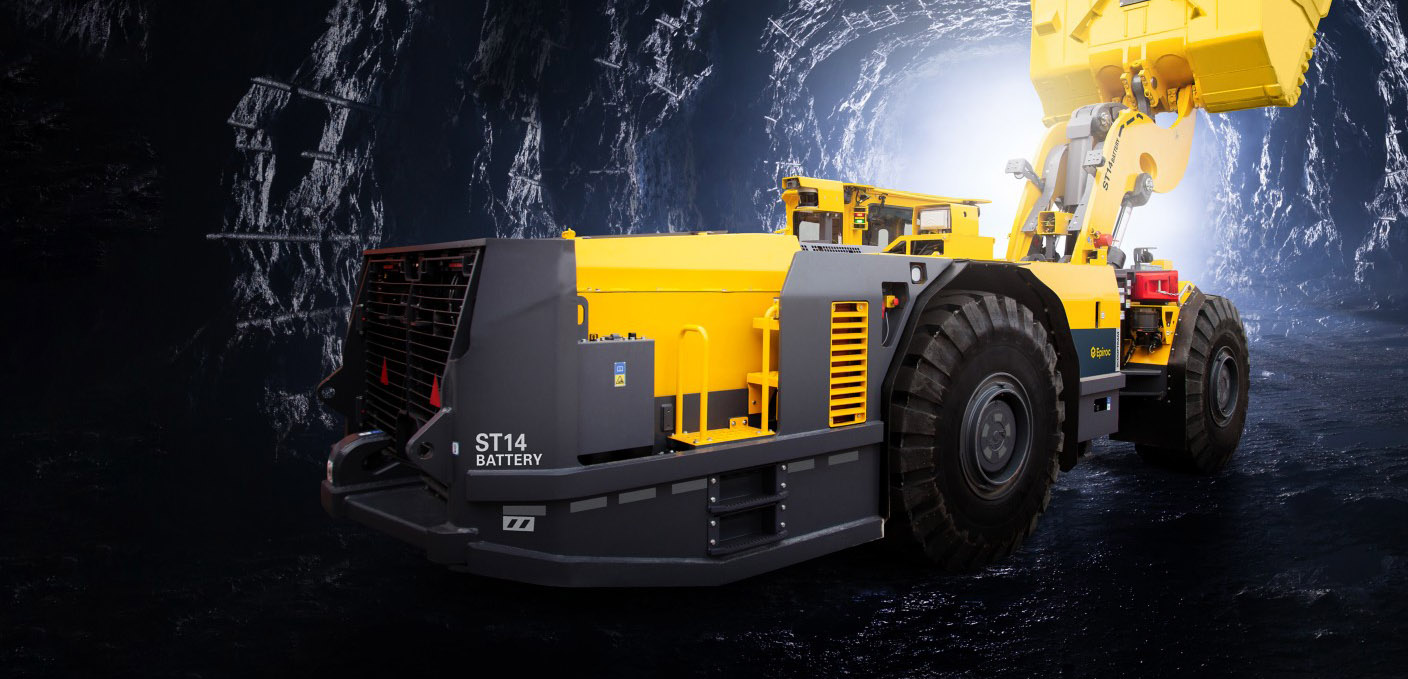
LTU Business together with several mining companies, equipment and system manufacturers and universities has started a new collaborative project, funded by the European Union. The project, which runs over three years and is called NEXGEN SIMS, will support the development of new technology, methods and processes that enable a more sustainable and efficient carbon-neutral mining operation.
– LTU Business takes a central role in a consortium and project that has the power to change the mining industry, says LTU Business CEO Gry Holmgren Hafskjold.
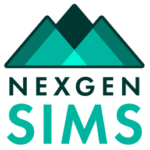 An important part of the project is to develop and test autonomous carbon-neutral mining processes. This includes the use of battery-electric mining equipment, full utilization of 5G for optimal connectivity and positioning, autonomous material handling, AI powered traffic and fleet control and collaboration among machines. The project is also focusing on the mine worker of the future – ‘the modern miner’ -and safety, for example by developing autonomous mine inspection technology.
An important part of the project is to develop and test autonomous carbon-neutral mining processes. This includes the use of battery-electric mining equipment, full utilization of 5G for optimal connectivity and positioning, autonomous material handling, AI powered traffic and fleet control and collaboration among machines. The project is also focusing on the mine worker of the future – ‘the modern miner’ -and safety, for example by developing autonomous mine inspection technology.
Responsibility for communication, business development and education
LTU Business leads the project’s work package which deals with communication, business development and education.
– We are responsible for the project’s communication. This means that we shall show how the project supports the mining industry’s move towards becoming even more sustainable, safer and a more attractive workplace for future mining work. We will portray our world-leading mining environment and the project’s innovative power in many ways and in several relevant channels, including global events, film, animations and virtual reality experiences, says Niclas Dahlström, senior project manager at LTU Business.
– We will also be responsible for developing the business models of the future for the mining industry, with a focus on digitization and efficiency. We contribute with business development services to commercialize new products and services that will be important in the green transition, says Lisa Ek, strategy expert at LTU Business.
Part of a strong consortium
The project is coordinated by mining equipment and service supplier Epiroc and the other project partners consist of mining companies Boliden, Agnico Eagle Finland, KGHM Polska, K+S and OZ Minerals; services and system suppliers Ericsson, Mobilaris MCE, AFRY and KGHM Cuprum; business developer LTU Business and universities Luleå University of Technology and RWTH Aachen University – all based in Europe, except for OZ Minerals which is based in Australia.
– LTU Business takes a central role in a consortium and projects that have the power to change the mining industry. Now we start the work, says LTU Business CEO Gry Holmgren Hafskjold.
Builds on the SIMS project
NEXGEN SIMS builds on the successful H2020 EU-sponsored SIMS project, which ran between 2017 and 2020 and played an important role in advancing sustainable mining operations, partly through the use of battery-electric machines.
NEXGEN SIMS, Next Generation Carbon Neutral Pilots for Smart Intelligent Mining Systems, started May 1, 2021 and will run until April 30, 2024. The total budget for this project is EUR 16 million.
→ Watch a video trailer for the project.
→ Read more about the project at NEXGENSIMS.eu.
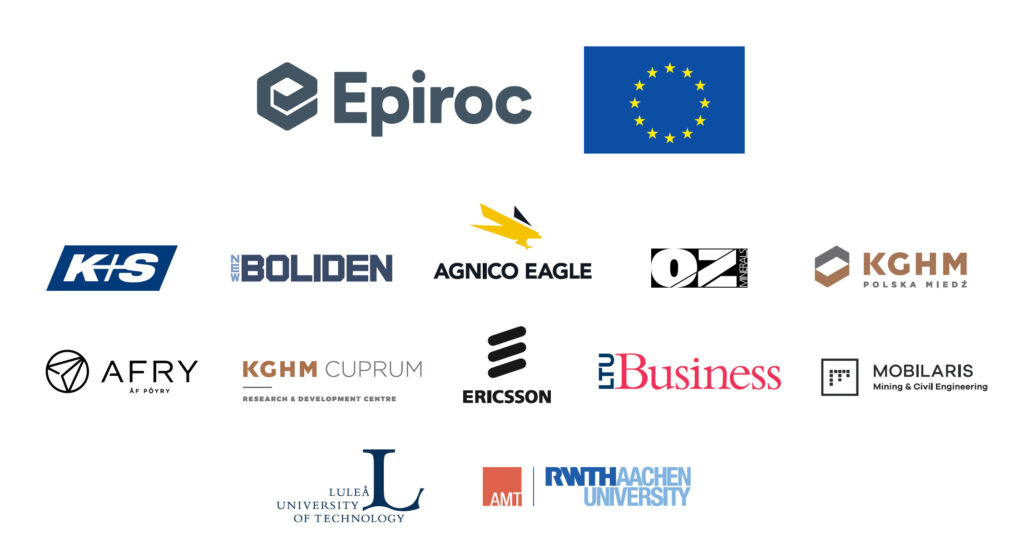
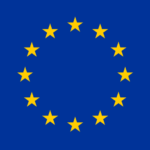 This project has received funding from the European Union’s research and innovation program Horizon 2020.
This project has received funding from the European Union’s research and innovation program Horizon 2020.
Our services offered to the mining and metal industry
LTU Business has provided innovation and business development services in hundreds of assignments in the mining and metals industry since 1983. Read about our offers for industry and academia.


Venture Cup finalists were supported by LTU Business

Venture Cup has nominated the finalists in its competition for early startups. A total of 343 entries were submitted to the competition and among the ten finalists in the northern region are the entrepreneurs behind BOOKI, Nowa Drops and Noah – Lokal Mat, three entries that all received idea and business development support from LTU Business.
– LTU business has helped us in many ways to reach our current position, says Grace Bavula Jr, one of the idea owners of BOOKI.
Venture Cup STARTUP is a national competition for early startups with SEK 500,000 in the prize pool. Winning the competition is considered a strong mark of quality and generates attention from both the media and potential investors.
The finalists in each region have now been announced and among the top ten in northern Sweden are three submissions that have been supported by LTU Business on their entrepreneurial journeys. They are BOOKI, Nowa Drops and Noah – Local Food.
“It feels great”

BOOKI is developing a digital solution that makes it possible to book common rooms in apartment buildings, such as the laundry room, via an app. Co-founder Grace talks about how it feels to be named a finalist:
– To be nominated for best startup in such a big competition feels fantastic! We have worked hard to create a well-functioning system and as strong a plan going forward as possible. Being seen as a strong team with a smart idea, with great prospects ahead gives us another boost in our conversations with future customers and financiers, says Grace.
LTU Business offers all students, employees and researchers at Luleå University of Technology cost-free and confidential support to develop their ideas and innovations. Christopher Frisk and Linnea Löfgren are business developers at LTU Business and those who coached BOOKI.
– It feels great that BOOKI, Nowa Drops and Noah have advanced in the competition. They have worked hard and purposefully to reach well-deserved places in the regional final and we wish them all the best, says Linnea.
Support along the way
LTU Business has helped BOOKI to develop strategy, plans and pitches – and to get in touch with the right people to take their idea further. Grace says:
– LTU business has helped us in many ways to reach our current position. We have received much-needed feedback that has helped us improve our approach and taken us to a stronger position. To always have LTU Business there for brainstorming ideas is something of great value to us.
Locally produced food and personal care in powder form
The finalists Nowa Drops and Noah – Lokal Mat have also received help from LTU Business to develop their ideas and activities.
The goal for Tommie Lögdahl and Nowa Drops is to reduce plastic waste by offering daily products for personal care in powder form.
Noah – Lokal Mat has received support from LTU Business in conducting market analysis and developing its business model, through an assignment from the regional initiative DIR (Datacenter Innovation Region). Noah wants to create a new marketplace where consumers can buy their food directly from producers in their vicinity by using an app.
→ See the complete list of all nominees in the Venture Cup STARTUP 2021. All winners will be presented during the regional finals, which will be hosted digitally later this year. The regional winners directly qualify for the Swedish final in September.
Congratulations on the nominations and good luck! ❤️


